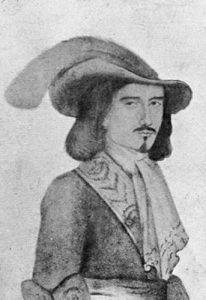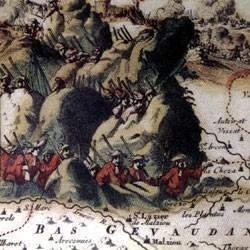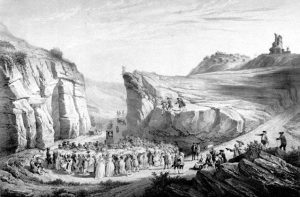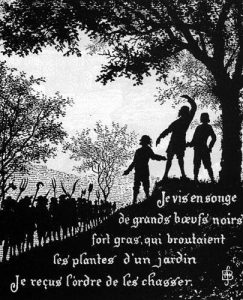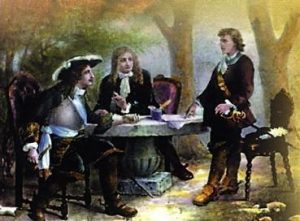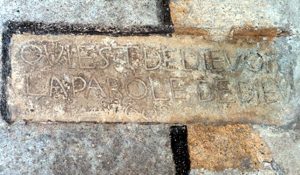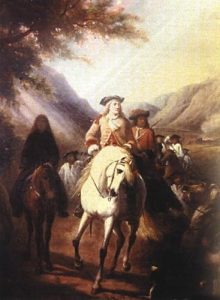Jean Cavalier was the most famous camisard leader
Jean Cavalier was born in Ribaute (Anduze County) on 28 November, 1681. He was the son of Elisabeth Granier and Antoine Cavalier. He worked as a farm hand with his uncle at Vézenobre, and then became baker’s boy at Anduze (Gard). In 1701, after being spotted in secret forbidden protestant gatherings, he left for Geneva. In 1702 he came back and, with a few young men from the plain, joined the rebels in the Cévennes after the murder of Father du Chayla ; he left the mountains in September and his troops increased and became better equipped with each attack.
Alone or together with Rolland, he ravaged entire Catholic villages and burnt down the churches. He attacked royal troops and at times defeated them as at the Mas de Cauvi, just outside Alès in December 1702, or at Devois de Martignargues, near Vézenobre in March 1704. But a little later, in April 1704 his troops were severely defeated at Nages. His secret “storage places” in Euzet were discovered and ransacked. He then started negotiations with Field-Marshall Villars to whom he surrendered. He left with a few faithful supporters.
He arrived in Geneva and offered to serve the duke of Savoy who made him a colonel. In 1706, at the head of an Anglo-Portuguese regiment composed of camisards and of refugees, he attempted to return to the Cévennes through Catalonia – but his troops were defeated at Almansa and he was severely wounded.
On half-pay he went back and forth between England and Holland until 1710, and finally settled in Ireland living on his small allowance. In 1735 he was promoted brigade general, and in 1738 lieutenant-governor of the Isle of Jersey. On 17 May, 1740, he died in Chelsea and was buried in the Western London suburb – and not in the specific French refugees’ cemetery in Dublin.

